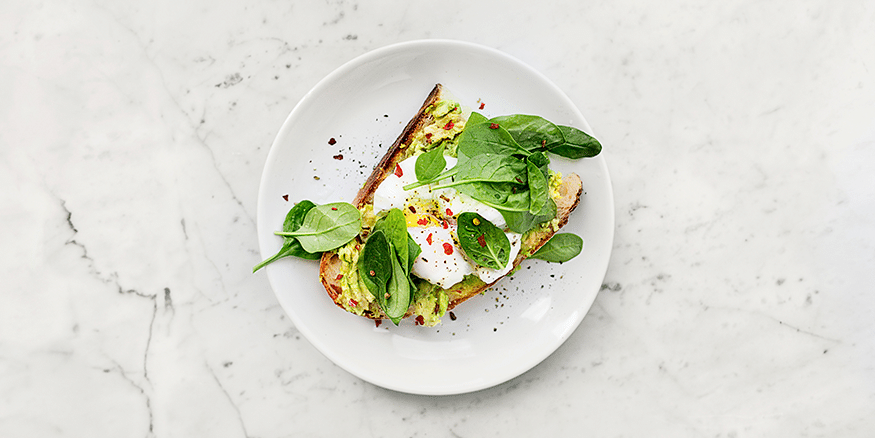
Irritable Bowel Syndrome and Diet: The Foods You Can Eat
Individuals with irritable bowel syndrome (IBS) can use nutrition and lifestyle strategies to help control and manage gut symptoms, improve quality of life, and optimize digestive health. It is common for people with IBS to experience gut symptoms after eating certain kinds of foods, and what may trigger symptoms in one person may not trigger symptoms in someone else. There are general strategies that can help everyone with IBS, and yet what works best for you will require an individualized approach.
Food is a powerful tool to have in your toolbox, and a registered dietitian can help guide and support you in creating a long-term strategy and plan that works for you and your lifestyle. This could include helping to foster a positive relationship with food, increasing confidence when making food choices at home and when out, encouraging nourishing foods that won’t worsen gut symptoms, preventing unnecessary food restrictions, and managing potential food fears.
15 Nutrition and Lifestyle Strategies for IBS
- Enjoy meals at regular times, chew well, and eat slowly. You may find it easier to digest and tolerate smaller portions of food vs. larger portions.
- Drink at least 8 cups (2 L) of fluid per day (e.g., water, herbal tea, broth) to stay hydrated.
- Try a short-term low FODMAP diet to help identify specific food triggers. FODMAPs are a group of specific carbohydrates that might trigger gut symptoms. High FODMAP foods include apples, onion, garlic, wheat, lactose, and sugar alcohols.
- Space fruit intake apart by 2-3 hours and stick to no more than one fruit portion per meal or snack.
- Choose cooked vegetables more often than raw, as cooked vegetables are easier to digest.
- Choose easier-to-digest proteins, such as eggs, chicken, turkey, fish, extra-firm tofu, and plain lactose-free greek yogurt. Lower-fat cooking methods, such as baking, roasting, steaming, boiling, and sautéing, can also help you avoid uncomfortable symptoms.
- Consider adding in certain types of fibre if you are constipated, such as flaxseeds, oats, inulin, or psyllium. Avoid wheat bran and prunes, which are highly fermentable fibres that can trigger symptoms such as gas and abdominal pain.
- Limit gas-producing vegetables and legumes, such as broccoli, cauliflower, cabbage, brussels sprouts, chickpeas, lentils, and black beans, if they trigger symptoms for you.
- Limit coffee and strong caffeinated teas (black, green) to no more than 3 cups per day.
- Limit alcohol, carbonated drinks, spicy foods, and deep fried, greasy foods (e.g., French fries, pizza, hamburgers, tempura).
- Limit sugar alcohols and artificial sweeteners, such as sorbitol, mannitol, xylitol, maltitol, and erythritol, especially if you are experiencing diarrhea. Some foods naturally contain these, such as prunes, cauliflower, and mushrooms, (except oyster mushrooms) as well as sugar-free candies and gums.
- Consider a short-term trial of a daily probiotic for at least one month and monitor symptoms. Check out probioticchart.ca for a list of evidence-based probiotics in Canada. Ask your doctor, pharmacist, and/or registered dietitian if there are any reasons why you shouldn’t be taking a probiotic (e.g., immunocompromised).
- Rule out gluten intolerance and celiac disease. It is possible for people to experience an intolerance to the carbohydrates in wheat (FODMAP) instead of the protein in wheat (gluten), which may be one reason why many people with suspected gluten intolerance tolerate 100% sourdough wheat bread (low FODMAP), but not regular wheat bread.
- Enjoy regular physical activity. This can help to reduce gas, bloating, stress, and anxiety, all of which can trigger gut symptoms. Talk to your doctor, kinesiologist, and/or physiotherapist about which level of physical activity is right for you.
- Manage stress and anxiety: The brain-gut connection is very strong and well researched. You may notice worsened gut symptoms during times of increased stress and anxiety, which is a common response. Strategies to reduce stress could include walking in nature, listening to calm music, taking a nap, cooking, meditation, tai chi, yoga, writing, reading, massages, therapy, or anything else that you find helps you to relax. Some people may also want to seek out counselling from a professional and explore psychological therapies such as biofeedback, cognitive behavioral therapy (CBT), and gut-directed hypnotherapy.















